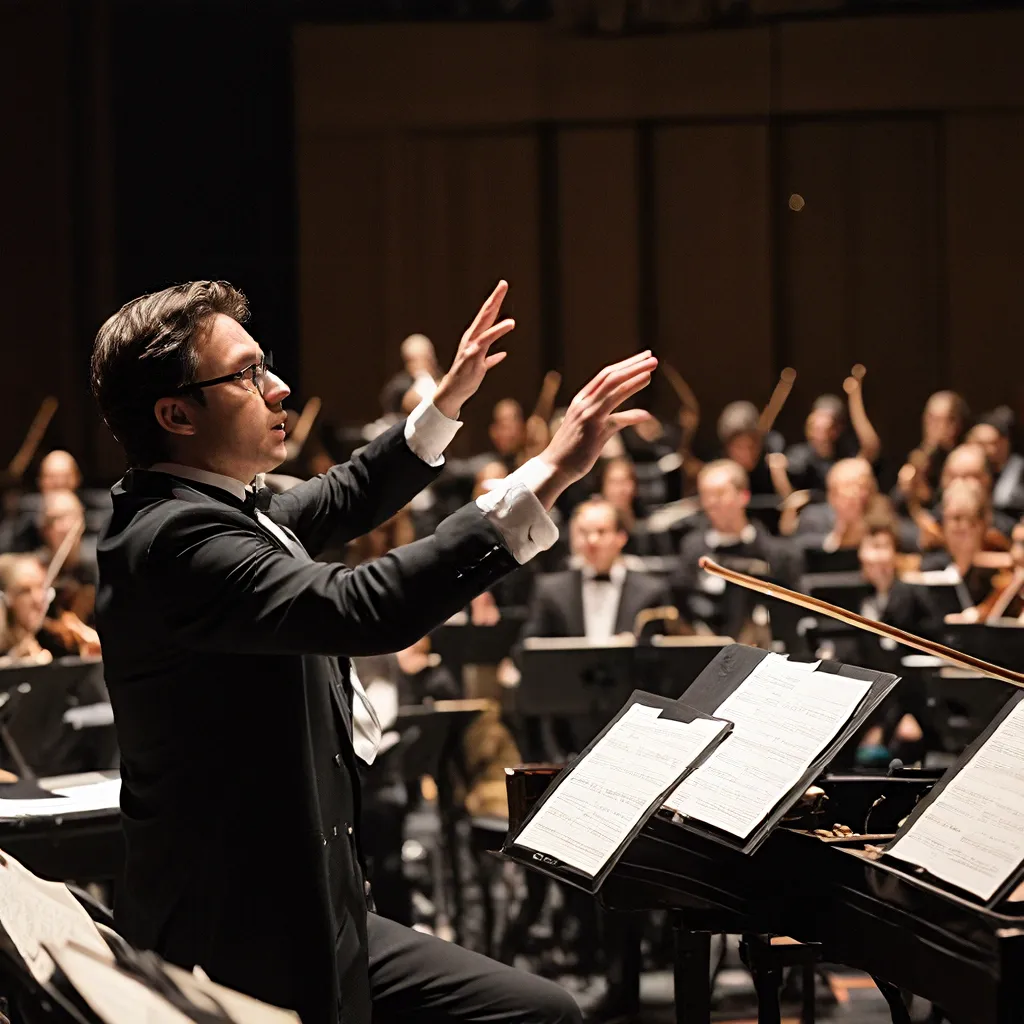
Unsung Heroes of the Stage
Have you ever found yourself mesmerized by the sheer spectacle of a blockbuster musical production? The soaring vocals, the intricate choreography, the elaborate sets – it’s enough to make your head spin. But amidst all the glitz and glamour, there’s one unsung hero who orchestrates the entire affair: the musical director.
As a musical theater enthusiast, I’ve long been fascinated by the crucial yet often overlooked role of the musical director. These maestros are the true conductors of the theatrical experience, weaving together the various elements of a show into a cohesive, captivating whole. And let me tell you, their job is no easy feat.
The Maestro’s Toolkit
Think about it – a musical director is responsible for overseeing every aspect of the musical performance, from the orchestra to the vocalists to the sound design. They must have a deep understanding of music theory, an acute ear for harmony and rhythm, and the leadership skills to bring a large ensemble of performers together seamlessly.
It’s like juggling a dozen spinning plates at once, all while conducting a symphony orchestra. The musical director must coordinate the intricate interplay between the musicians, the singers, and the technical crew, ensuring that every note, every harmony, and every cue aligns perfectly.
As the League of American Orchestras has noted, the musical director must also be a skilled communicator, able to “connect with the League and [their] colleagues” and “find inspiration and ideas for advancing the artform.”
Bringing the Vision to Life
But it’s not just about the technical mastery. The true magic of a musical director lies in their ability to interpret the composer’s vision and translate it into a captivating performance. They must have a deep understanding of the show’s narrative, the emotional arcs, and the thematic undercurrents, and then use their musical expertise to bring those elements to life.
Imagine a production of “Hamilton” without the dynamic, pulsing orchestrations that drive the show’s revolutionary fervor. Or a rendition of “Wicked” that fails to capture the soaring, operatic grandeur of the score. The musical director is the alchemist who transforms these abstract musical elements into a living, breathing theatrical experience.
As cellist Joquail Doggette eloquently puts it, the musical director is the “conductor, arranger, mentor, and artistic collaborator” who ensures that the “musical storytelling” of a production is executed to perfection.
The Unsung Heroes
And yet, despite the vital importance of their role, musical directors often toil away in the shadows, their contributions going unnoticed by the casual theatergoer. They are the unsung heroes of the stage, the maestros who transform the written score into a living, breathing work of art.
But that’s starting to change. In recent years, there’s been a growing appreciation for the crucial role of the musical director, with organizations like the Albany Symphony championing workshops and mentorship programs to support the next generation of musical theater composers and conductors.
Elevating the Artform
And that’s a good thing, because the musical director’s role is more important than ever. In an age of high-tech, visually stunning productions, the musical director is the one who must ensure that the music remains the beating heart of the show. They are the guardians of the artform, the stewards who keep the magic of live performance alive and thrilling.
So the next time you find yourself swept up in the grandeur of a Broadway blockbuster, take a moment to appreciate the unsung heroes behind the curtain – the musical directors who orchestrate the spectacle and make the magic happen. They are the true conductors of the theatrical experience, and their contributions are essential to the vibrancy and vitality of the musical theater landscape.
And who knows, maybe one day, the spotlight will finally shine on these maestros, and their vital role in bringing the music to life will be celebrated and revered as it deserves. Until then, I’ll continue to be in awe of their artistry, grateful for the way they elevate the theatrical experience and make our hearts sing.
After all, as the saying goes, the music is the heart of the show – and the musical director is the virtuoso who sets it soaring.

